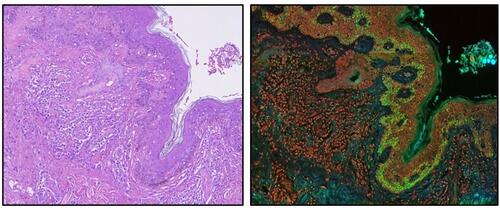Genomic Assay Predicts Biochemical Failure and Risk of Metastasis in Prostate Cancer Patients After Surgery and Radiation Therapy
By LabMedica International staff writers
Posted on 14 Aug 2014
An advanced genomic test has been used to predict the course of prostate cancer in patients following surgery and radiation treatment.Posted on 14 Aug 2014
Investigators at Thomas Jefferson University (Philadelphia, PA, USA) used the commercially available GenomeDx Biosciences (San Diego, CA, USA) Decipher assay system to analyze the genomes from tumor samples from 139 patients who had received radiation therapy following prostate surgery.
Decipher is a genomic test carried out on a small tissue sample that was removed during surgery, which measures the expression levels of 22 RNA biomarkers involved in multiple biological pathways across the genome associated with aggressive prostate cancer. The Decipher test uses the expression of these biomarkers to calculate the probability of clinical metastasis within five years of radical prostatectomy surgery and within three years of successive PSA rise (biochemical recurrence).
Results revealed that Decipher correctly predicted biochemical failure and risk of metastasis after prostate cancer postsurgical irradiation. It was suggested that patients with lower risk as defined by Decipher would benefit from delayed radiation treatment, as opposed to those with higher Decipher scores. However, this needs prospective validation in order to become generally accepted. Nonetheless, genomic-based models may be useful for improved decision-making for treatment of high-risk prostate cancer.
"We are moving away from treating everyone the same," said first author Dr. Robert Den, assistant professor of radiation oncology and cancer biology at Thomas Jefferson University. "Genomic tools are letting us gauge which cancers are more aggressive and should be treated earlier with radiation, and which ones are unlikely to benefit from additional therapy. Our analysis suggests that genomic analysis scores could be used, in concert with other diagnostic measures such as PSA testing, to help determine which patients would benefit from additional radiation therapy and more aggressive measures, and which are less likely to benefit."
The study was published in the July 8, 2014, online edition of the International Journal of Radiation Oncology*Biology*Physics.
Related Links:
Thomas Jefferson University
GenomeDx Biosciences













